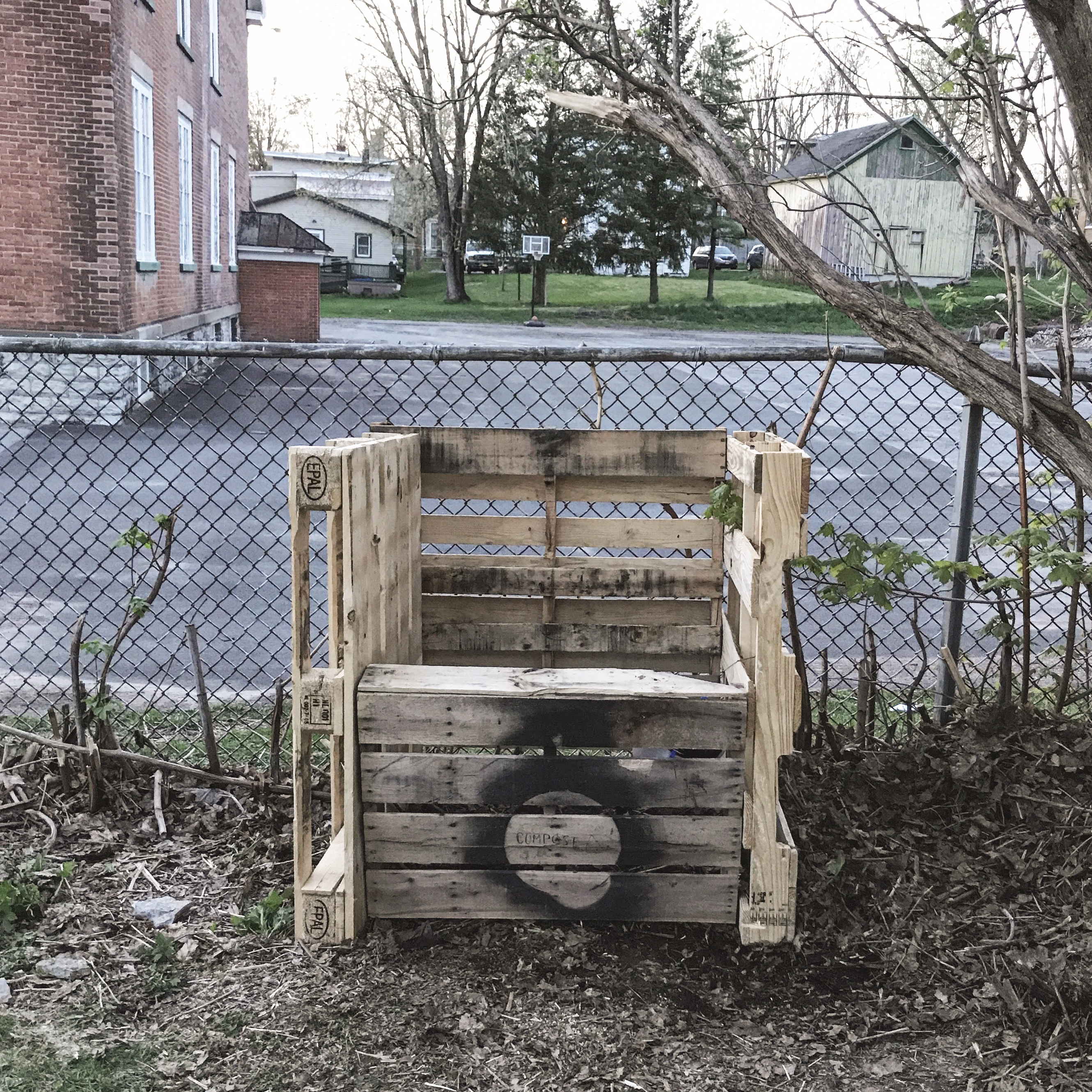Super Simple Composting Tips

What is composting?
Here's the literal definitions for my word peeps:
Composting: com·post /ˈkämˌpōst/ verb - "make (vegetable matter or manure) into compost."
Compost: com·post /ˈkämˌpōst/ noun - "decayed organic material used as a plant fertilizer."
In regular lingo, composting is taking things like kitchen scraps (banana peels, coffee grounds, egg shells, veggies scraps etc.) and yard waste and turning them into awesome soil that is AMAZING for the earth.
Why Compost?
I touched on this above, but let me emphasize it again. Composting is a beautiful and simple way to turn something that would otherwise fill up our landfills and emit harmful methane gases, into something that is actually adding value to the earth. When food scraps go to the landfills, they will release methane gas as they decompose rather than adding valuable nutrients to the ground. (Here's a little article that touches more on that. I am no expert on the matter!).
Okay, now how do I do it?
There are many different ways to create compost. But the basics of it are to mix wet, "green" nitrogen rich materials (such as food scraps, grass clippings, coffee grounds, garden waste, flowers etc.) with dry "brown" carbon rich materials (dry leaves, egg shells, paper etc.) in a ratio of about 30 carbon to 1 nitrogen (aka lots of dried leaves for every bit of kitchen scraps) so that they can decompose well. You'll want to do this where it will get sunlight and you'll be able to turn it to "aerate" the compost to help with the decomposing process. We made a compost bin from pallets, which was super simple and is the perfect size. You can also use garbage bins, a simple pile, dig a hole, worm composting, wire bins...the list goes on and on. Do some researching to see which style of bin would best fit your needs. The key is that it is breathable.

You'll want to start by adding some dried brown materials (hay would be perfect, but I used dried leaves) to the bottom to help give it breathing space, then start adding your kitchen scraps! Just be sure to add that 30:1 radio of carbon to nitrogen as you add your kitchen scraps. No need to get too picky with this and pull out your math skills, I usually just make sure to cover my kitchen scraps pretty heavily in dried leaves whenever I dump it. Then you'll want to turn it regularly (at least once a week) to get it decomposing quicker. However, if you were to leave it without turning it, this would work too! It would just take quite a bit longer to decompose. This just depends on what you're goal is with your compost bin.
That's the gist of it! Told you it was simple! Of course, there is so much more science and many more techniques in the world of composting that we have barely scratched the surface here, but you really don't need all of that to simply get started. You can dive into that once you become a composting nerd too ;)
Good to Compost:
- Food scraps (anything excluding animal + dairy products)
- Yard waste. (If you're planning to use your compost in your veggie garden, make sure you aren't putting things in it that could contain harmful chemicals.)
- Paper (make sure it doesn't have any glossy coating or dye on it and tear it up into small pieces)
- Tea and coffee
Not good:
- Animal products such as meat and dairy
- Items such as compostable garbage/grocery bags. Check the notes because usually these say they can only be composted in commercial composters, not at home.
I hope this gives you the motivation you need to start your own compost bin or pile! Please reach out if you have any questions as you get started. Already a composter? I'd love to know what technique you use!
